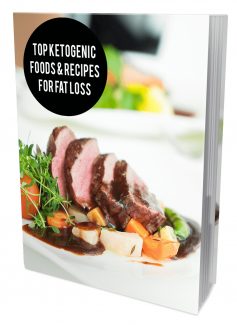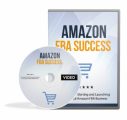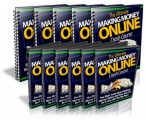 License Type: Master Resell Rights
License Type: Master Resell Rights  File Type: ZIP
File Type: ZIP
 SKU: 64198
SKU: 64198  Shipping: Online Download
Shipping: Online Download
Sample Content Preview
Introduction
The ketogenic diet or as like some people prefer to call it; the Keto diet or low carb diet is about consuming a lot of protein and fats but fewer carbs. This diet makes the body send the fats that we consume to the liver, which the latter transform it into energy to keep the body strong and active for a long time without feeling tired quickly.
The word ketogenic is derived from the word “ketosis” which means the state of the body when it doesn’t have enough glucose in it to turn it into energy, so it generates ketones that work as an amazing source of energy for both the body and the brain which makes it a great option for losing weight in a short term.
The keto diet prevents you from consuming the lot for carbs that are the main reason of gaining weight because the sugar makes you hungry most of the time. When you consume carbs with small portions and focus more on protein and fat; your body doesn’t push you most of the time to eat; instead, it uses those fats to satisfy your hunger and keep you active.
If you are looking for a diet that will help you lose weight in a very short term, the ketogenic diet is the perfect diet for you because it not only helps you achieve great lean body; but also provides immense health benefits.
The Benefits of The Ketogenic Diet
So far, there are a lot of great benefits of the keto diet, but no negative effects have appeared yet at all; which makes it the delicious diet that fits everybody. Here are other health benefits of keto diet:
1. Increases the level of HDL: One of the best aspects of the ketogenic diet is that it increases the level of HDL in the body, which is the good cholesterol that helps in lowering the risk of heart diseases.
2. Helps in Alleviating Diabetes Type 2: By removing carbs from your daily meals, you say goodbye to sugar and insulin because your body already has what it needs, and you won’t have to be worried about what you eat.
3. Lowers Blood Pressure: High blood pressure is a catastrophe because it might lead to kidney failure, heart diseases, strokes...
With this diet, you can say goodbye to all those worries and live a healthy life away from all those malignant diseases that threaten your life.
4. Gum Disease:
Gum disease is one of the worst and most painful diseases which is commonly caused by the consumption of too much sugar. When you eliminate sugar from your daily meals, you can avoid gum diseases and toothaches.
While on the keto diet, most of your diet will consist of foods high in fats coupled with a measured intake of proteins and low carbohydrate intake. Some of the food categories allowed in this diet include:
1. Proteins
Poultry: Free-range Cornish hen, quail, goose, pheasant, chicken, duck, and turkey.
Fish and Seafood: Cod, tuna, scrod, anchovies, mackerel, flounder, catfish, trout, mahi-mahi, halibut, sole, sardines, salmon, halibut, snapper, and calamari. Always opt for wild caught fish to avoid toxins present in commercially reared fish.
Grass-fed Meat: These include beef, venison, goat, and lamb. Meat from wild animals are also acceptable; however, avoid sausages and meats that come with sugary sauces and those covered in breadcrumbs. Choose the chunks of meat with more fat since they contain less protein and more fat.
Pork: Boston butt, pork chops, ham pork, and loin. When choosing ham, be on the lookout for added sugar.
Bacon and Sausages: Preferably, you should buy these at specialty health food stores. If this is not possible, always read the labels to avoid those which contain fillers such as soy or sugars.
Canned Tuna and Salmon: Canned tuna and salmon are okay to consume while you are on the keto diet. However, avoid seafood rich in fillers, breaded seafood, and fried seafood.
Vegetable Protein Powders: Protein supplements such as whey protein, hemp protein, pea, and rice are acceptable.
Whole Eggs: This includes chicken eggs, and quail eggs which you can prepare through any mean desired; fried, soft or hard boiled, deviled, scrambled, or omelet style.
Shellfish: Oyster, mussels, lobster, shrimp, crab (not imitation crab that contains additives), clams, scallops, and squid.
2. Fats and Oils
Because these are your main sources of energy while you are on this diet, go for the types of fats and oils you enjoy. These may include:
* Omega 3 fatty acids from fish such as tuna, shellfish, and salmon
* Fish supplements or krill
* Monounsaturated fats such as egg yolks, avocado, and butter
* Vegetable oils such as olive oil, coconut oil
* Non-hydrogenated beef tallow, ghee, and lard.
* Duck and chicken fat
In order to make it easier to stick to this diet, be aware of which types of fat your body can tolerate. Many people seem to have zero or very low tolerance of vegetable oils and mayo. This may be a good thing because most of these oils are rich in omega 6 fatty acids - the kind that is bad for your body’s cholesterol levels.
In this case, work with the listed monounsaturated fats to reduce the inflammatory effect brought about by polyunsaturated fats. Nevertheless, work to balance both fats because you cannot survive on monounsaturated fats alone (You need a lot of fats and oils). Even then, avoid hydrogenated fats such as margarine to reduce the amount of trans-fats you eat.
- License: Master Resell Rights
- Category:Audio & Videos
- Tags:2021 Ebooks With Audio Master Resale Rights








